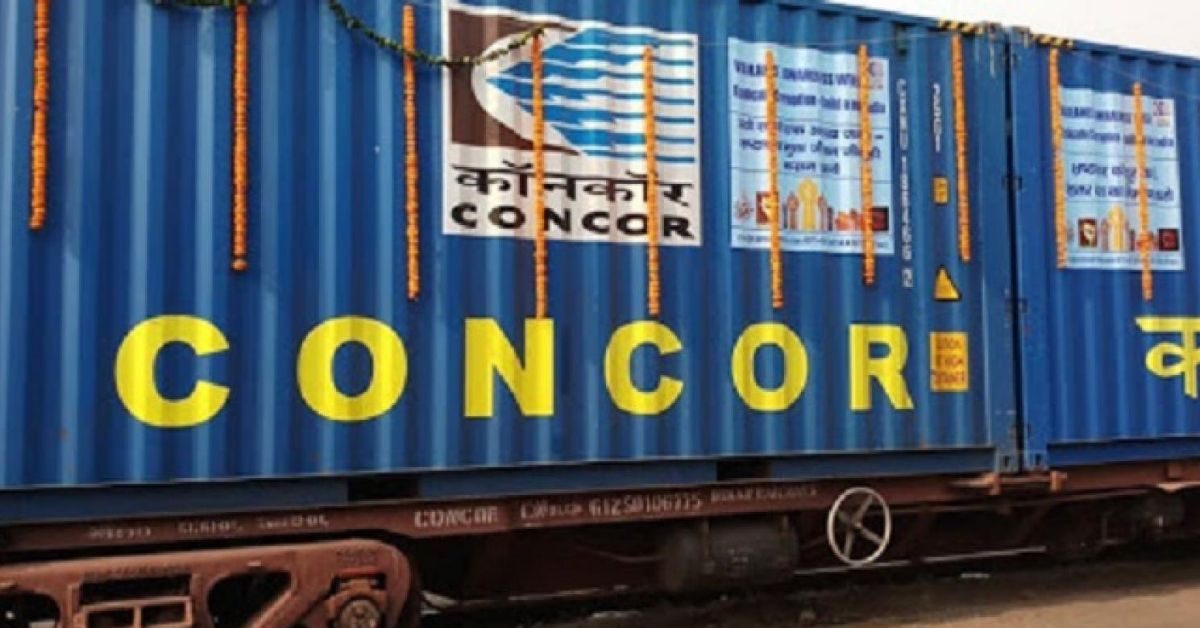At a time when there is still uncertainty over the land licensing fee (LLF) of the divestment-bound Container Corporation of India (Concor), the private sector container train operators have raised concerns about the preferential treatments being given to the company, which is soon going to be a private entity.
Rather than allotting land to Concor on a preferential basis, the Association of Container Train Operators (ACTO) is batting for a common user-facility that will create a level-playing field for all the players. According to industry sources, the concerns raised by the industry players may well be the reason why a final settlement on LLF is being delayed. Though there were reports that Concor has said that it has finalised a LLF deal with the ministry of railways, the company chairman and managing director, V Kalyana Rama later indicated that talks are still in progress on the issue.
According to sources, based on settlement of the LLF issue, Concor will be paying a lump sum LLF of Rs 3,500 crore towards usage rights for 35 years for 24 terminals built on railway land. “Such exclusive benefits being given to Concor, which is on the verge of becoming a privately-controlled entity due to divestment, should be avoided. It may create a dominant private player, which will automatically get a market monopoly,” said Manish Puri, President, ACTO.
The privatisation plans of Container Corporation (Concor) was kept on hold by the government due to the non-clearance of LLF. On March 27, railways minister Piyush Goyal too had said that he had already signed the deal and it is already before the Union Cabinet. “The decision is pending before the Cabinet. The land decision will have an impact on other ministries also. So, the Cabinet may take a considered call,” said a source aware of the development. It was reported that the new policy will bring down the land lease rates for use of railway land for industrial purposes to less than 3 percent. However, the present developments indicate that this is yet to be finalised.
The national transporter revised the LLF charge for Concor in April 2020 to a fixed fee of 6 percent linked to the market value of the land. This was set to increase at a rate of 7 percent per annum, factoring in inflation as well in comparison with a variable fee model depending on the volume. After fixing the new LLF at the rate of 6 percent, the ministry of Railways had slapped a land fee of Rs 1,276 crore for 13 terminals in 2020-21, well above Concor’s expectation of Rs 460 crore. Concor had also decided to return 14 terminals too.
However, in its annual financial results, Concor accounted only Rs 517 crore towards this. The company CMD had also announced that based on the new settlement the LLF will be less than Rs 450 crore from 2021-22 onwards.
“We wish to know whether there was a policy change or settlement after the initial demand of Rs 1,276 crore. The revised amount is more than 50 per cent lower than the initial demand, which is giving an undue advantage to Concor,” Puri said.The association also raised concerns over the move allowing Concor to “cherry-pick” locations that only gives them a competitive advantage. “All terminals developed on railway land operated by Concor should be converted into common user facilities, and a mechanism to ensure non-restrictive and non-discriminatory access to all authorised container operators should be established,” he added. Out of the total 15 players who have got license from the railways for container operations, 12 are ACTO members.
Source : Money Control







